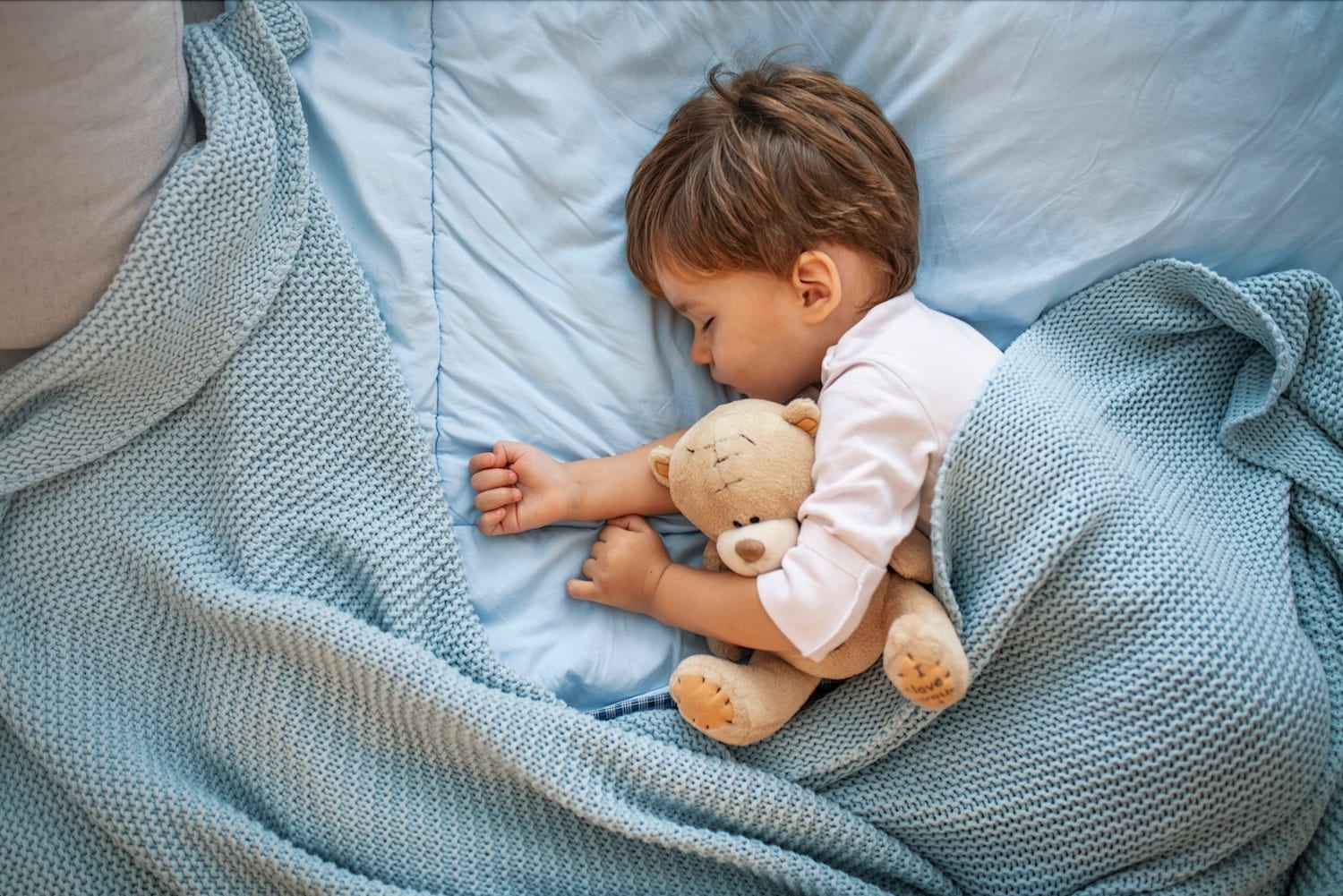
How to get kids to sleep
Do your children sleep very badly at night, wake up 3-10 times, and protest against daytime sleep? You’re not alone! Children’s sleep studies and parent surveys from around the world show that around 60%a of parents struggle with these problems. The children from birth to three years of age experience childhood sleep problems in one way or another.
But how to make a kid sleep instantly? The caregivers at Little Scholars can help you with their professional level of care. In this article, we will take a closer look at how to get kids to go to sleep and understand what are the life hacks to do it better.

Sleep disturbance in the first months of life is normal
Be prepared for the fact that during the first two months the baby will often wake up at night. During the day, their sleep will also be unstable. They can sleep for 20-40 minutes and immediately fall asleep for 2 hours. This is normal but over time, the night’s sleep should lengthen. You can speed up this process by following a few simple rules.
From 2 months, it is better to darken the room as much as possible with blackout curtains. This way the child will understand that night has come and they need to sleep. Of course, the baby will still wake up at night until they need night feedings. There is no need to turn on the light, you may just try to do everything in the dark.

How to understand that the child is tired and ready to go to bed?
In children up to six months, signs of fatigue can be quite visible, like touching the ears, nose, yawning. Also, watch how the child falls asleep: if they fall asleep quietly in 10-15 minutes, put them to bed on time.
Be prepared for the fact that after six months the baby will be more and more reluctant to lie down. Children think that sleeping is “boring” and want to have some more fun. Why is sleep important for kids in terms of discipline?
You should pay special attention to the moments when the kid is about to sleep but you give them a chance to play a bit longer. Five more minutes and they’re already gone too far, refusing to go to bed. In this state, it will be difficult to get out of it.
There are a few tips to follow that can help you to get kids to sleep.

1.Use humidifiers
Fresh and humid air is another condition for the baby to sleep better. The room temperature should be between 68 to 72 °F. Before going to bed, the room should be ventilated so that air circulates in it.
Due to the dryness of the air, the child can automatically touch their nose, feeling uncomfortable, and thus wake up. Air humidifiers aim to put moisture into the air. It can be especially helpful when heating systems can make the air dry together with drying out your eyes, nose, lips, and skin.
If during sleep the child constantly snores or frequently breathes through the mouth, this is a sign that you should communicate with the ENT doctor.
2.Set up a smooth sound
It is widely known that smooth calming sounds improve the sleeping routine for some people. Parents often use white noise if there are noisy neighbors nearby or if there is construction outside the window.
White noise is a monotonous sound recorded at different frequencies. The secret is that it allows a person to move more smoothly from one sleep cycle to another, so sleep becomes more restful. The volume of white noise should not exceed 50 dB, its source should be at a distance of 2 meters from the crib.
During sleep, you can turn on the sound of a vacuum cleaner, falling water in the kitchen, wind, waterfall, a flying plane, a moving car, etc. The sound is selected individually depending on what the child likes.

3.Start your rituals before bed
In order to understand how many hours of sleep do kids need, it is a great idea to stick to your individual schedule. Your regular daily routine will help you put your baby to bed on time. If you implement a ritual that you will repeat over and over again before going to sleep, it will create a comfortable pace for you.
Every night you can read a book, then close the curtains, turn on a dim light, feed the baby, do a massage, etc. You can play relaxing music or put on a smooth sound.

4.Be attentive to your child’s needs
Learning how many hours of sleep should kids get, you need to observe their daily habits, needs, and activities. Your little one knows perfectly well what are the things that they cannot live without. The only problem is that they can’t explain it yet. So it is your job to understand it.
Sometimes your usual habits may interfere with the baby’s needs. Watching TV before bed is not a relaxing activity for a child. At this time, the child’s visual analyzer works, and the brain continues to process information.
Also, other gadgets like smartphones or tablets, are a source of white light. It disrupts the production of the sleep hormone melatonin. Therefore, it is better not to watch TV for at least an hour and a half before going to bed. Moreover, it is better not to arrange Skype calls with friends and relatives at this time, so as not to excite the baby too much.

How Much Sleep Do Kids Need?
If your child sleeps a lot during the day, they can throw night parties at night or in the morning. In this case, you should limit the time they sleep during the day. If the baby sleeps more than 2-2.5 hours, wake them up and play.
At the same time, remember that due to age, the child may not be awake all day. They will get tired and will not be able to develop normally.
Try to observe the intervals of sleep and wakefulness. However, they may change from time to time. So, at 4-6 months, a child can sleep an average of 3-4 times a day, at 6-8 months – 2-3 times a day, at 9-13 months – 2 times a day. The later you go one-time sleep, the better.
Normally, it is a good sign when it happens between 15 and 18 months. Make sure your only nap during the day is at least 2 hours. This will allow the baby to sleep well and recharge their batteries.
It is important to remember that the mother must also be ready to learn the new routine. It is not only the question of how much sleep should kids get but a mother too.
A tired mom who does not have the energy to change her habits, will not be able to follow the rules and respond correctly in difficult situations. It is vitally important to get enough sleep and find an ally to help out.
In a few days of such routine, you will admire your sleeping baby, and the phrase “time to sleep” will delight both you and your baby!




